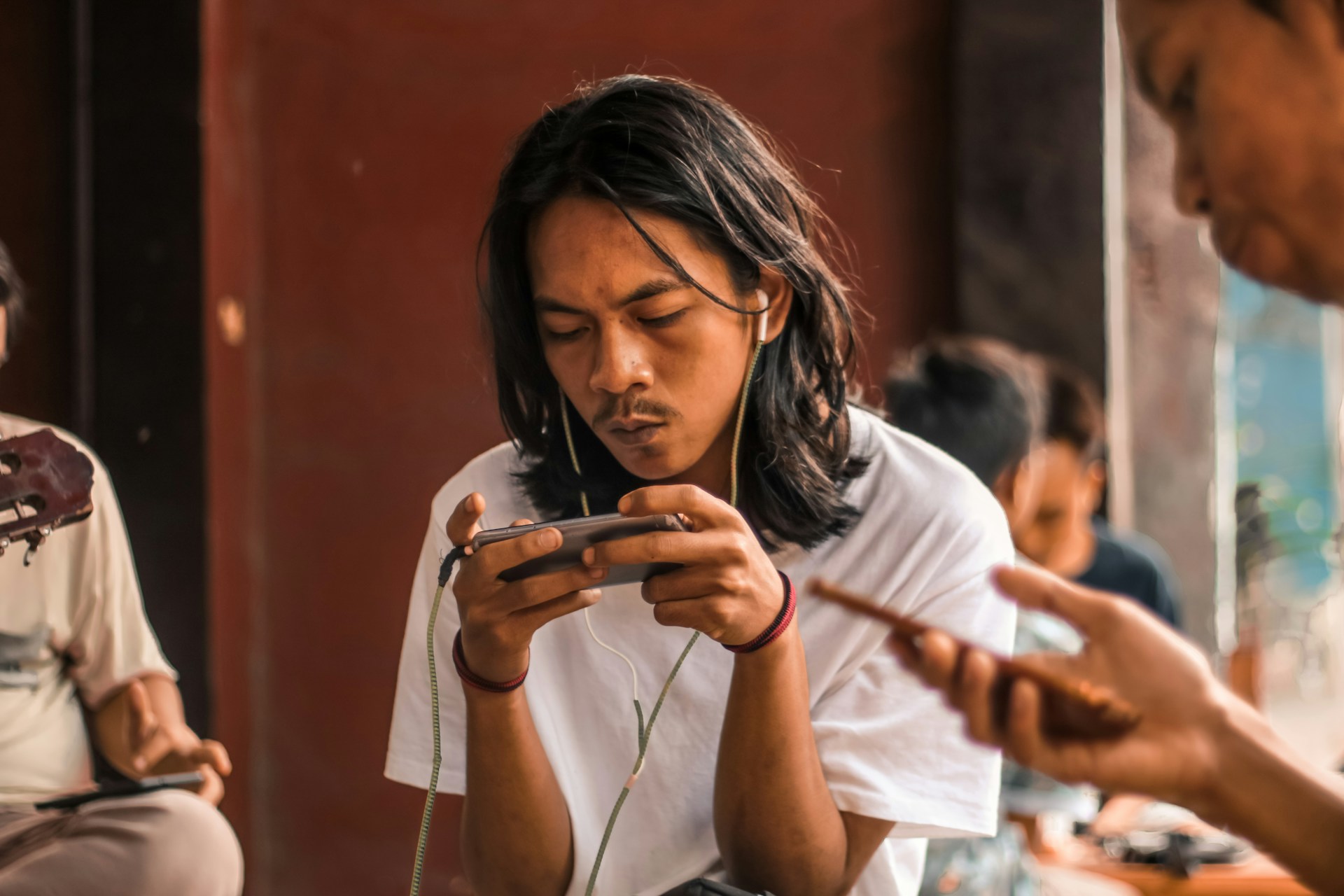
How to Avoid Disasters in Indonesian Game Translation
If you’re trying to capitalize on Indonesia’s gaming market, designing your game with an option of Indonesian game translation is quite essential nowadays. With its burgeoning tech-savvy youth population, Indonesia presents an irresistible opportunity for game developers worldwide. However, navigating the complexities of the Indonesian language and culture requires extra care.
Poorly executed game translations can lead to various issues, from awkward and incomprehensible dialogue to culturally insensitive content that alienates players. Misunderstandings of regional dialects, informal language, and local customs can result in a game that fails to connect with its target audience.
Addressing the issues mentioned above can help you easily transform this potential treasure trove into an endless opportunity. Ensure you have a comprehensive understanding of the proper localization strategy in Indonesia.
The Nuances of the Indonesian Language
The Indonesian language often presents unique challenges for game localization. The language boasts a rich vocabulary and complex grammar, but its nuances can easily be lost in translation. Regional dialects, such as Javanese or Sundanese, can significantly impact word choice and phrasing. Moreover, Indonesians have a formal and informal register, and using the wrong tone can cause confusion.
Cultural sensitivity is paramount in Indonesian game translation. Direct translations can often lead to awkward or even offensive expressions. A deep understanding of Indonesian culture is essential to convey the intended meaning while maintaining cultural appropriateness.
Common Indonesian Game Translation Mistakes

Poor translations can significantly impact a game's reception. Here are common errors and how to avoid them:
Literal Translations
Translating word-for-word can lead to nonsensical or culturally inappropriate content. Solution: Employ professional translators with deep cultural understanding and always conduct back-translations to ensure accuracy.
Ignoring Regional Dialects
Using formal Indonesian in regions where local dialects are dominant can alienate players. Solution: Conduct market research to identify target regions and their primary dialects. Incorporate dialect-specific terms and phrases where appropriate.
Misusing Formal and Informal Language
Incorrect formal or informal language can affect the game's tone and atmosphere. Solution: Establish clear guidelines for language register based on target audience and game genre.
Cultural Insensitivity
Overlooking cultural nuances can lead to offensive or inappropriate content. Solution: Collaborate with cultural experts to review all game content for potential cultural issues.
Inconsistency
Inconsistent terminology and phrasing can confuse players. Solution: Create a style guide to maintain consistency throughout the game.
Read Also: Why is LQA Crucial for Indonesian Game Localization
Understanding Indonesian Culture
Indonesian culture is a complex tapestry woven from diverse ethnic and religious influences. To create a truly immersive gaming experience, developers must grasp Indonesian society's core values, beliefs, and social norms.
Culture significantly impacts gameplay and storytelling. For instance, Indonesian culture strongly emphasizes family, respect for elders, and harmony. These values can be incorporated into game mechanics, character development, and narrative arcs. Understanding local preferences for game genres, themes, and aesthetics is crucial for success.
Cultural references can enhance a game's appeal but must be used carefully to avoid misunderstandings or cultural appropriation. Incorporating popular Indonesian folklore, historical figures, or contemporary pop culture elements can resonate with players. However, ensuring that these references are accurate and respectful is essential. On the other hand, avoiding sensitive topics such as religion, politics, and social inequalities is crucial to prevent backlash.
Building a Strong Localization Team

A dedicated localization team is essential for delivering a high-quality, culturally resonant game experience. Each team member plays a crucial role in the localization process.
Translators
First, you need qualified translators. They’re responsible for converting the game's text into the target language while preserving meaning and tone. They should possess excellent language skills, cultural awareness, and familiarity with the game's genre.
Cultural Experts
Invest in a reliable team of cultural experts who offer insights into the target culture. This way, you’ll ensure that the game aligns with local values, preferences, and sensitivities. They also help avoid cultural faux pas and provide context for translators.
Localization Testers
Finally, you need to verify the quality of the localized product and identify errors, inconsistencies, and gameplay issues. The translator should be fluent in both the source and target languages.
Decoding the Localization Process
The game localization process involves multiple stages, each contributing to the final product's success. Effective planning and project management ensure a smooth workflow and high-quality output.
The initial step is to define the project scope, goals, and timeline. Assemble the localization team and establish communication channels. Remember to Identify all game content requiring localization, including text, graphics, audio, and video.
Next, translate text content into the target language, ensuring accuracy, consistency, and cultural appropriateness. Adapt the game to the target market, considering cultural nuances, language differences, and local preferences. This includes text expansion/contraction, graphics modification, and audio/video dubbing or subtitling.
Conduct rigorous testing to identify and fix errors, inconsistencies, and gameplay issues. Integrate localized content into the game and prepare for release. Thorough planning and project management are essential for avoiding delays and ensuring the project stays on track.
Read Also: Market Strategy for Malaysian Game Publisher
Tips for Effective Indonesian Game Localization
 Creating compelling and authentic dialogue in Indonesian is crucial for player immersion. Adapting the game's user interface (UI) and user experience (UX) to Indonesian preferences is essential for player satisfaction.
Creating compelling and authentic dialogue in Indonesian is crucial for player immersion. Adapting the game's user interface (UI) and user experience (UX) to Indonesian preferences is essential for player satisfaction.
Crafting Engaging Indonesian Dialogue
Use natural language that fits the game's tone and reflects each character's background and motivations. Add cultural references for authenticity, keep dialogue concise, and break up longer exchanges with actions or visual cues. Consider hiring professional Indonesian voice actors to enhance engagement.
Localizing Game UI and UX
Ensure the text is clear and readable with appropriate font size, color contrast, and layout. Adapt UI elements to fit Indonesian aesthetics and account for longer text due to language differences. Test with Indonesian players to identify usability issues, ensuring all instructions are easy to follow.
Marketing Your Game to Indonesian Players
Identify your target demographic and tailor your marketing efforts accordingly. Use popular Indonesian social media platforms to engage potential players and collaborate with local gaming influencers for promotion. Create marketing materials in Indonesian, including trailers and social media content, and consider targeted advertising campaigns on these platforms.
Mastering the Art Indonesian Game Localization
Navigating the intricate Indonesian gaming market requires finesse, cultural awareness, and a well-executed localization strategy. By understanding the nuances of the Indonesian language, embracing cultural sensitivity, and building a solid localization team, developers can unlock the full potential of this vibrant market.
Remember, effective Indonesian game localization goes beyond mere translation. It's about crafting an immersive experience that resonates with players on a cultural and linguistic level. By investing in quality localization, developers can ensure their games are not just played but truly enjoyed by Indonesian audiences.
Embrace the challenge, learn from the common pitfalls, and embark on a journey of successful game localization in Indonesia. Partnering with a trusted language service provider is crucial for successful localization.
Digital-Trans Asia, a leading content localization expert in Southeast Asia, offers comprehensive game localization services, including translation, subtitles, and web novel localization. With our deep understanding of local cultures and linguistic nuances, we can help you create immersive gaming experiences that captivate regional audiences.
Are you ready to take your game to new heights? Contact Digital-Trans Asia today for a free consultation.